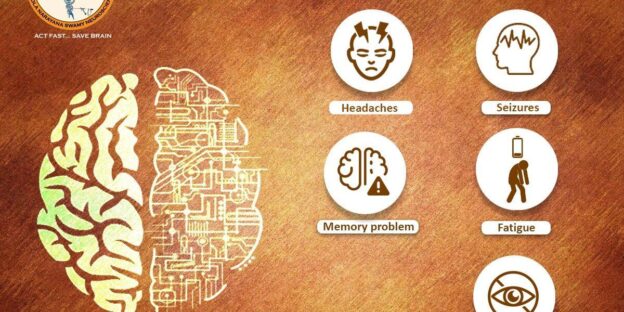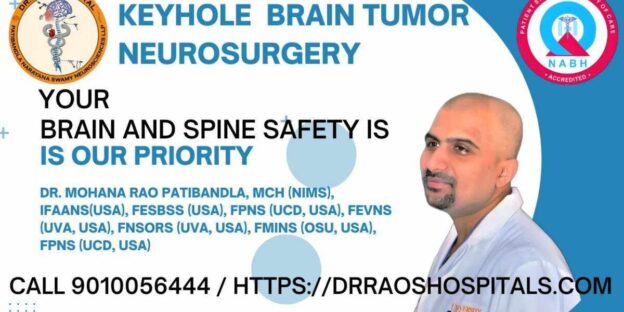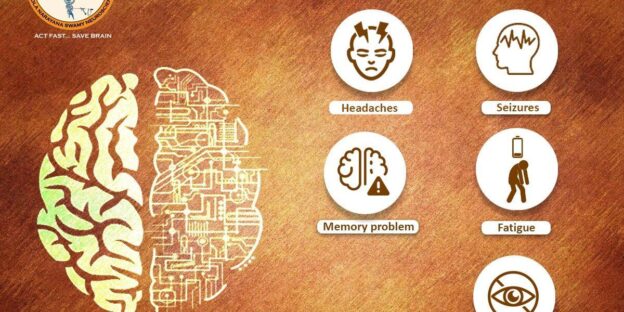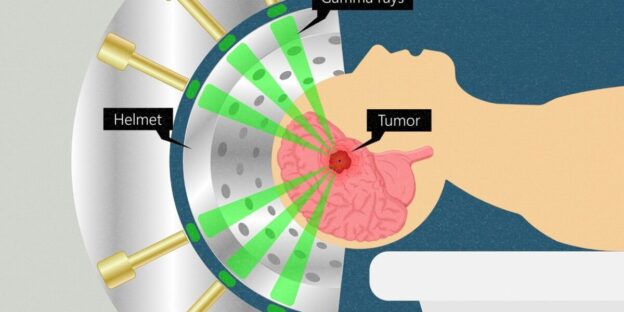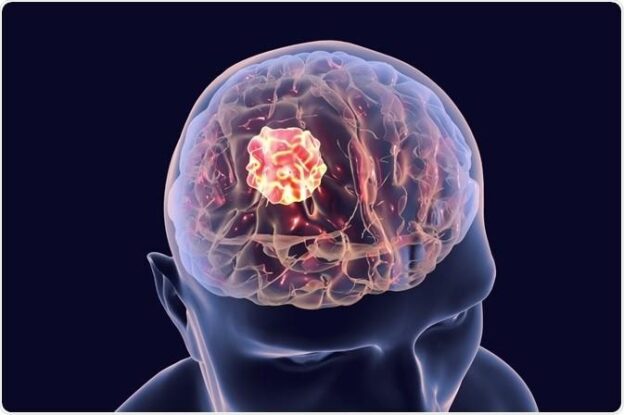FAQs on Brain Cancer: Expert Insights from Dr. Rao
25 frequently asked questions (FAQs) and their answers for patients with brain cancer:
- What is brain cancer, and how does it develop?
- Brain cancer is the growth of abnormal cells in the brain. It can originate in the brain (primary) or spread from other body parts (secondary).
- What causes brain cancer?
- The exact cause is often unknown, but genetic mutations, radiation exposure, and family history can contribute.
- What are the common symptoms of brain cancer?
- Symptoms include headaches, seizures, changes in vision, balance problems, cognitive changes, and more.
- How is brain cancer diagnosed?
- Diagnosis involves a combination of medical history, physical examination, and imaging studies such as MRI or CT scans.
- What are the different types of brain cancer?
- Types include gliomas, meningiomas, chondrosarcoma, chordomas, and more, each with unique characteristics.
- What is the difference between benign and malignant brain tumors?
- Benign tumors are non-cancerous and typically slow-growing, while malignant tumors are cancerous and can spread to other body parts.
- What are the available treatment options for brain cancer?
- Treatment options include surgery, radiation therapy, chemotherapy, targeted therapy, and immunotherapy.
- Can brain cancer be cured?
- The outcome varies, but early diagnosis and appropriate treatment can lead to remission and improved quality of life.
- What is the role of surgery in brain cancer treatment?
- Surgery aims to remove as much of the tumor as possible while preserving healthy brain tissue. It is often the first step in treatment.
- What is the recovery process after brain cancer surgery?
- Recovery varies based on the extent of the surgery but may involve rehabilitation, medication, and monitoring.
- What is the prognosis for brain cancer patients?
- Prognosis depends on factors like tumor type, grade, location, and overall health. Consult with your healthcare team for personalized information.
- Can brain cancer be prevented?
- There are no known methods for preventing brain cancer, but a healthy lifestyle and early detection can improve outcomes.
- What are the side effects of brain cancer treatments?
- Side effects may include fatigue, hair loss, nausea, and cognitive changes. Discuss these with your healthcare team.
- Is there a risk of brain cancer recurrence after treatment?
- Recurrence is possible, so regular follow-up and monitoring are crucial.
- What support services are available for brain cancer patients and their families?
- Cancer organizations and healthcare institutions frequently offer support groups, counseling, and resources.
- Can brain cancer affect cognitive function and memory?
- Yes, brain cancer can impact cognitive function and memory. Cognitive rehabilitation and support can help manage these changes.
- Is brain cancer hereditary?
- While some forms of brain cancer may have a genetic component, most cases are not hereditary.
- Can children develop brain cancer?
- Yes, brain cancer can affect individuals of all ages, including children.
- Is brain cancer contagious?
- Brain cancer is not contagious; it cannot be spread from person to person.
- What is the role of radiation therapy in brain cancer treatment?
- Radiation therapy uses high-energy beams to target and destroy cancer cells and can be used as part of a treatment plan.
- What is the role of chemotherapy in brain cancer treatment?
- Chemotherapy uses drugs to kill or slow the growth of cancer cells. It is typically used when surgery and radiation are not sufficient.
- Can brain cancer cause personality changes?
- Brain tumors may cause personality changes in specific areas, but these are treatable and manageable with appropriate care.
- Is there a link between cell phone use and brain cancer?
- Research has not shown a clear link between cell phone use and brain cancer. The topic is still under study.
- What is the role of immunotherapy in brain cancer treatment?
- Immunotherapy is a rapidly advancing field that aims to harness the body’s immune system to fight cancer. It may be used in certain brain cancer cases.
- Can brain cancer patients lead an everyday life after treatment?
- Many patients can lead fulfilling lives after appropriate treatment and rehabilitation. Quality of life can significantly improve with early diagnosis and comprehensive care.
Please note that these FAQs are for informational purposes and should not replace professional medical advice. Patients with brain cancer should consult their healthcare providers for personalized guidance. Dr. Rao, a renowned dural-trained brain tumor fellowship-trained neurosurgeon, and Dr. Rao’s Hospital are committed to educating and supporting patients and their families in their journey to understand and manage brain cancer. Feel free to reach out with additional questions, and remember, you’re not alone on this path to knowledge and healing.

